Arts Help has partnered with Waveland, a Canadian non-profit music organization, for their Spring 2021 Everbloom Virtual Music Festival. With a vision to empower the Canadian music scene and bring intimate live music experiences to audiences, Waveland first started out as a 2012 post-graduate project in Toronto, Canada. Nine years later, it now counts numerous initiatives such as a popular live boat concert called R&B Under the Stars, virtual Songs for Seniors performances and a drive to guide up-and-coming Canadian artists along a changing music industry.
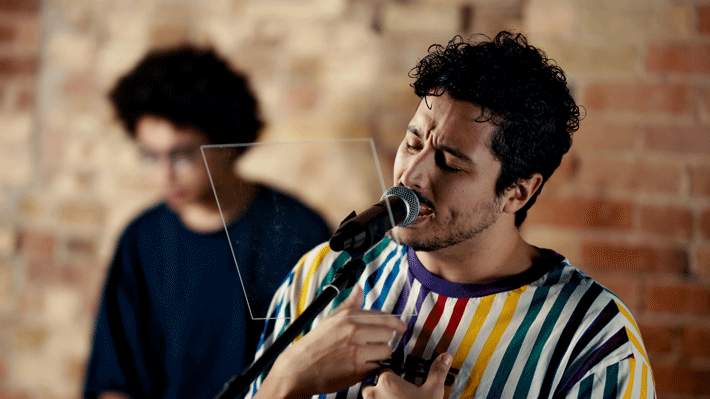
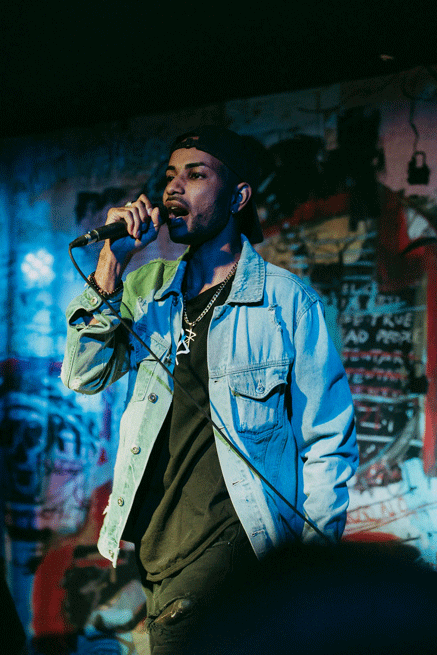
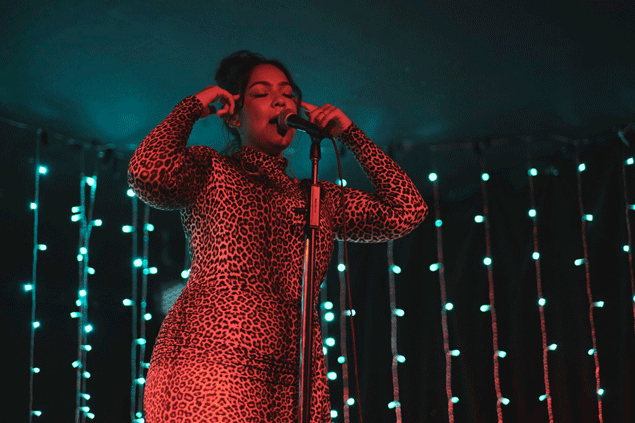
The following interview with Waveland founder and Chief Executive Director, Del Mahabadi, follows the organization’s programs to empower local artists, see what the music scene looks like today, understand changes in the industry and spotlight tips for Canadian artists.
What was the goal of Waveland’s Everbloom Virtual Music Festival that Arts Help partnered with?
When COVID-19 hit, we created a playlist called ‘Songs I Wrote During Quarantine’ and received a lot of submissions that came through. It kind of gave us a little peakhole into how busy musicians actually are in the background; even though they’re not performing live, they’re still creating a lot of content and a lot of music. Even more, due to the lockdowns, they were able to get really initimate with their craft for the first time without any outside influence.
As such, content for the Everbloom Music Festival has really grown since the initiative first came about last fall 2020. Initially, it was supposed to be an in-person festival that was going to take place under the Bentway in Toronto with a restriction limited to 100 people gathering outside. We wanted to use this opportunity of an allowance of outdoor gatherings to test out the festival. However, COVID-19 restrictions then changed and that’s when the in-person performance could no longer take place and we decided to pivot to a virtual festival.
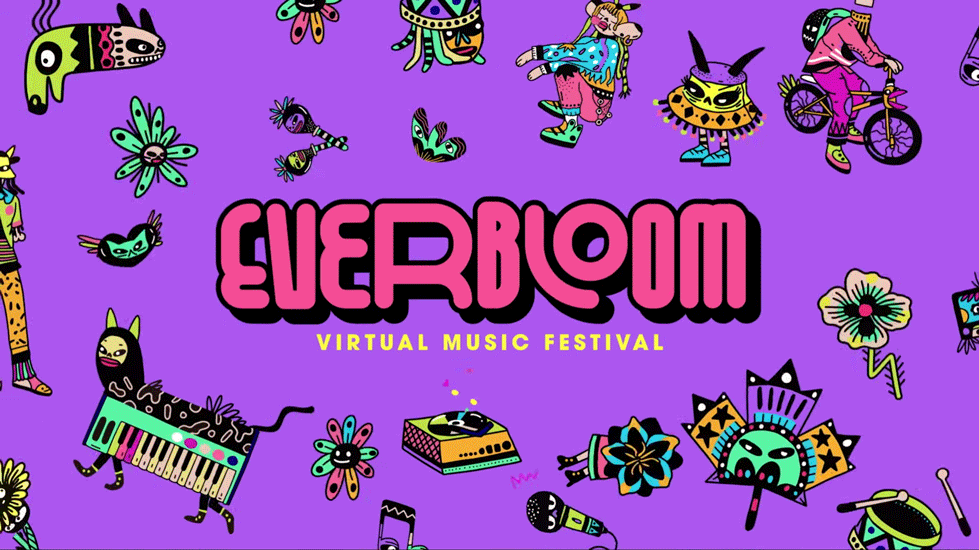
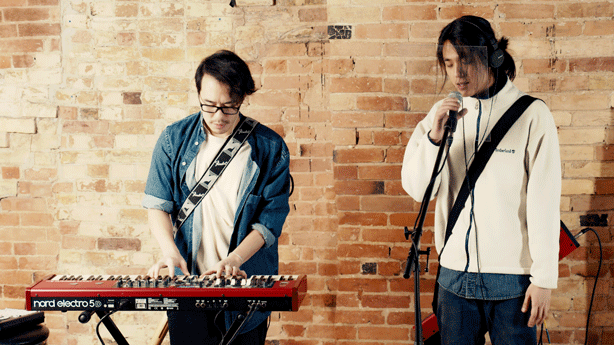
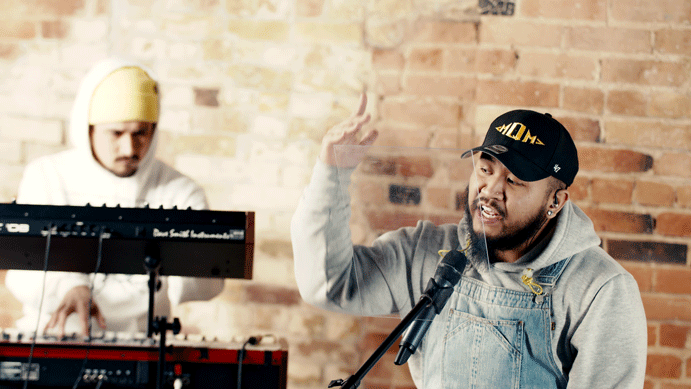
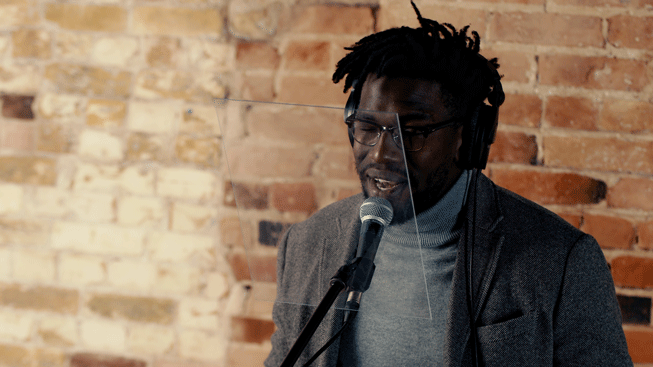
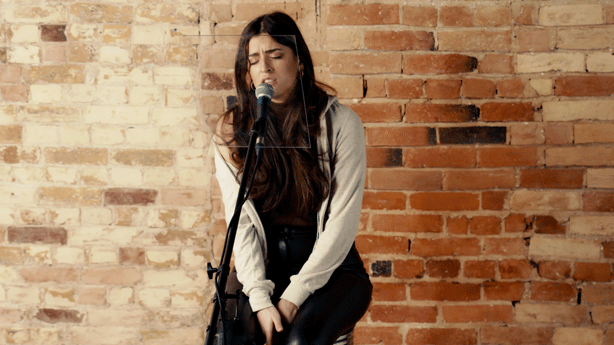
This Everbloom Music Festival kind of speaks to the fact that the artist is still ‘blooming’ despite the pandemic and that there’s still so much creativity coming out of it despite the circumstances. But now, the festival itself is starting to grow in a direction that is a lot more impactful.
Outside of covering Canadian music and providing employment opportunities to arts and culture workers during this time, I think it’s moving towards becoming a very green and sustainable festival, which you can see with all the flower and nature components. I think that when it ends up being an in-person festival in a post-pandemic world, we’re hoping to turn it into being very sustainable festival.
The Arts Help partnership we now have involves cross-promotions and providing artists with the opportunity to speak with the Arts Help team and reach Arts Help audiences across the world. I think over time as the relationship grows, that it will be move towards the arts and sustainability components Arts Help follows.
What are some of the other projects and programs that Waveland has at the moment?
We are currently waiting on some funding for summer and fall 2021, but right now we have a weekly virtual concert experience that we serve to Canadian seniors in long-term care homes across Canada. These all feature Canadian musicians and it’s an intergenerational program offering an opportunity to these young Canadian musicians who wouldn’t have previously connected with the elderly community. Now, we’re kind of bridging that gap and bringing them together. So far it’s been great! We’ve had a lot of positive feedback from both parties involved and it has been supported by the Canadian Red Cross, as well as funded by the Canadian Government.
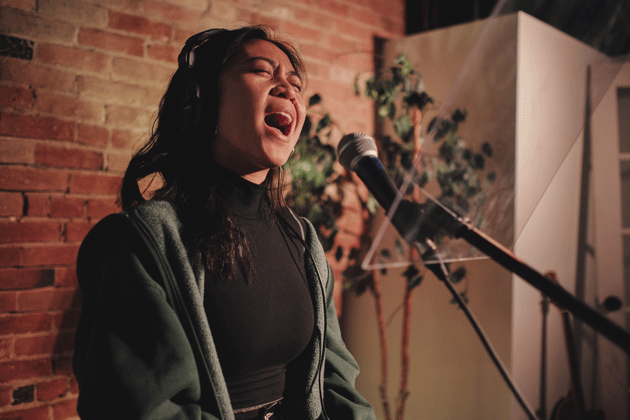
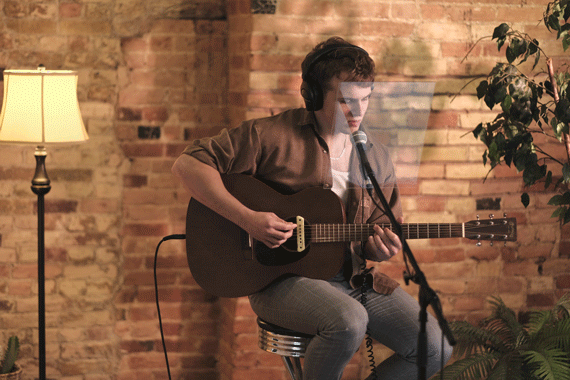
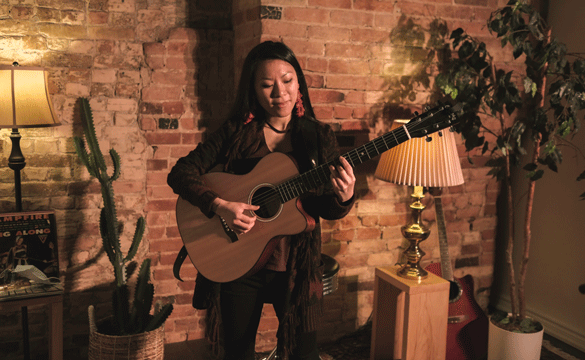
We also have the Everbloom Music Festival which is in its third rendition as we’re doing a Canada day festival featuring the artists. We also have ‘R&B Under the Stars’, which is an intimate R&B in-person concert that takes place on a pirate ship on the water along the Toronto skyline. This program has been around for 3 years and it’s our most popular one that sells out every year. We’ve now expanded to Ottawa, Canada, and we’re going to be cruising along Rudeau Canal featuring artists from Ottawa.
There will be a free virtual component to ‘R&B Under the Stars’ for those who can’t be outside, so it becomes accessible if you can’t afford to go out or don’t want to pay the ticket price. We’re also hoping to reignite Toronto R&B Sounds which are the intimate concerts that happen indoors, as well as some initial projects that are on the go but are not confirmed or alive yet until we get the funding for them.
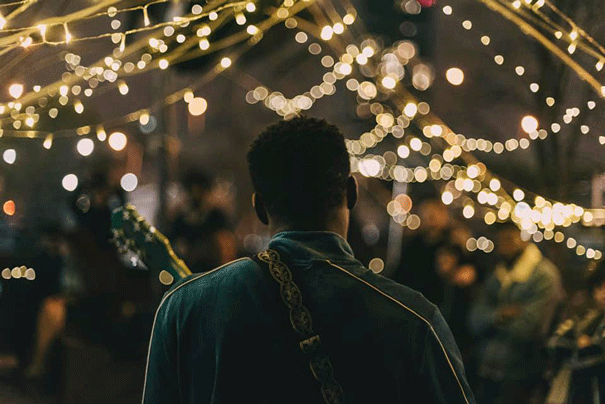
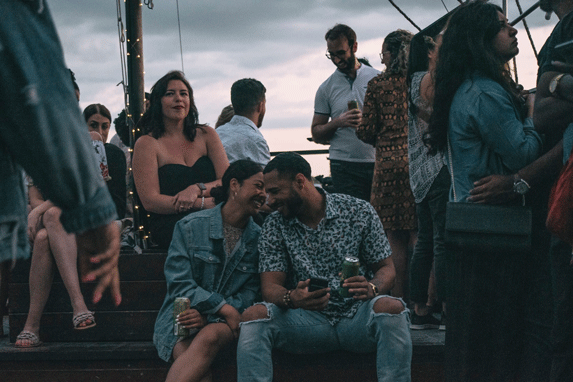

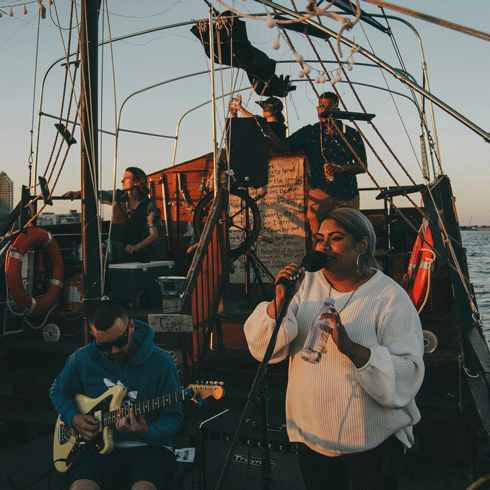
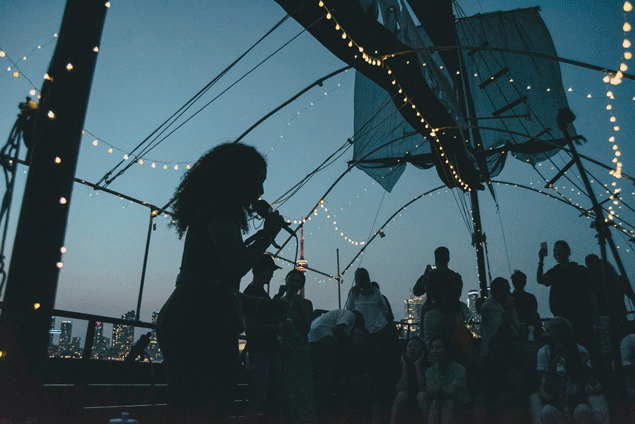
We know of many famous Canadian musicians, from Drake to Leonard Cohen to Celine Dion to The Weeknd. So, we know that there’s incredible talent in Canada. However, in your opinion, why is it important to empower the Canadian music scene?
I personally feel the healing power of music every time I experience it live. It’s hard for me to put into words how I feel after I have left a live music performance, no matter the genre. And it is that feeling that I want to capture. Also, every artist that I have met up until now has always been so pure and so genuine.
In addition, I know that the goal and the standard that is set in the music industry is one where you either make it or you don’t. However, I believe that this is an unrealistic standard because no other industry actually uses that standard for success. It’s not like you either become the world’s most famous dentist or you don’t become a dentist at all. There’s still a large range between the extremes of celebrity status where you can make hundreds of thousands of dollars in the midst and actually generate and create a proper career for yourself as a musician without ever becoming a Drake or Justin Bieber.
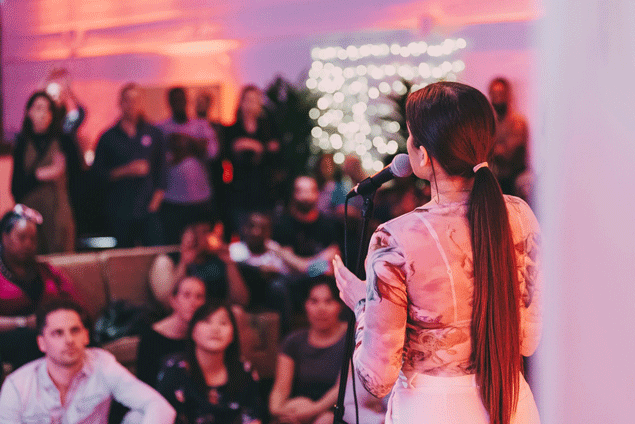
I think there’s a shift in the industry in terms of the perspective and how unrealistic the goals and standards are. And there’s a lot of musicians, especially the younger musicians, that are not looking to become famous. They’re just looking to practice their craft, connect with their audiences and grow within their field in a realistic way and support themselves.
What do you think makes Canadian artists stand out in the international music scene?
I haven’t met many international artists, as the ones that I’ve met have been through international audiences visiting our events. Waveland has a partnership with Airbnb and they promote our events to anyone visiting Toronto internationally. However, I can definitely say that the environment created here within the music industry, even if we still have a lot of work and improvement to do, is extremely inclusive and diverse at the level we’re working on.
In terms of creating these intimate experiences, connecting with the audience members and working with artists intimately, it is very diverse and very inclusive. I think that environment creates a safe space for the artist to be themselves and not feel as if they have to hold themselves to this standard set by various corporations, labels or the industry as a whole.
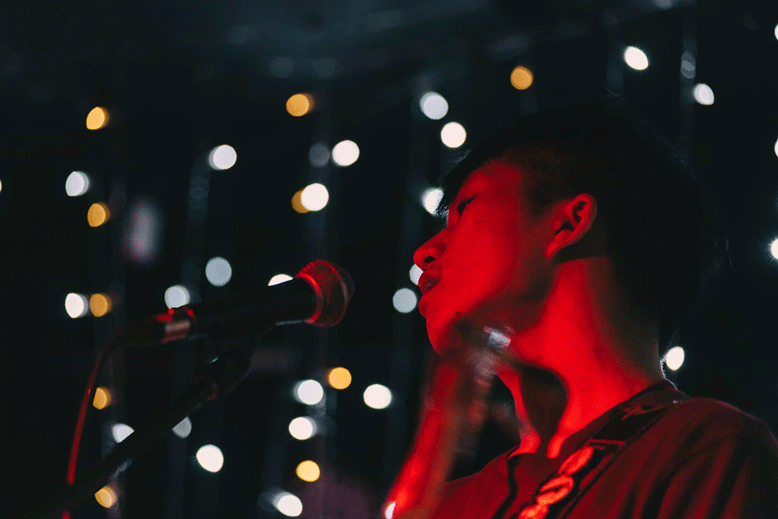
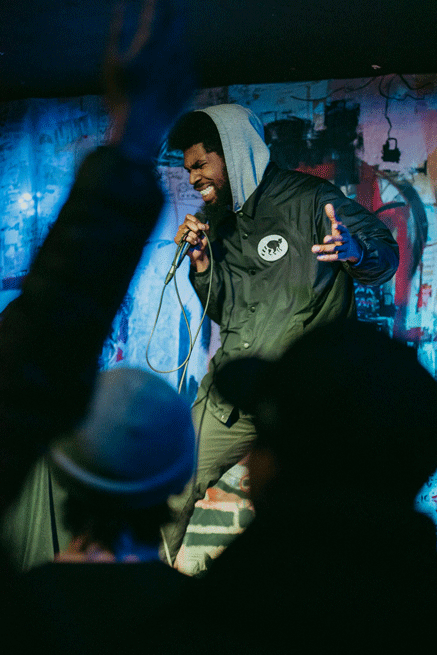
However, I’m not too sure whether this type of space is created on the international level. As such, I think it resulted in this recipe for a beautiful environment to create music in. Canadian artists, specifically, are known to be extremely humble, extremely open-minded and kind and generous with their craft. That’s something that I’ve noticed over the years.
How exactly does Waveland find, connect and work with Canadian artists?
Originally, when we first set out with this project, it was myself reaching out to artists I knew and getting my friends to reach out to other musicians that they knew. However, over time it has turned into artists reaching out to us or agencies and labels reaching out to us about either covering or working with their artist. Right now, when we have experiences or intimate events that we hold, we usually just put out a call.
We have a big artist following that keeps a lookout for those calls and based on their relationship with us and if they enjoy working with us, they then refer their other artist friends to come working with us as well. As such, it has been a community that has been growing organically over the years and luckily we’re in a position where we don’t have to go and seek artists, they now come to us.
What are some of the greatest obstacles Canadian musicians face in getting their voices heard?
Quality and programming. These are some of the biggest obstacles because live music, from my perspective, has had this bad reputation of being this dingey kind of raw place that you need to go to seek it; you just sit somewhere and passively listen to a live performance. Or, if it’s local Canadian artists, they’re usually just opening for a bigger international artist. So it’s a very passive relationship.
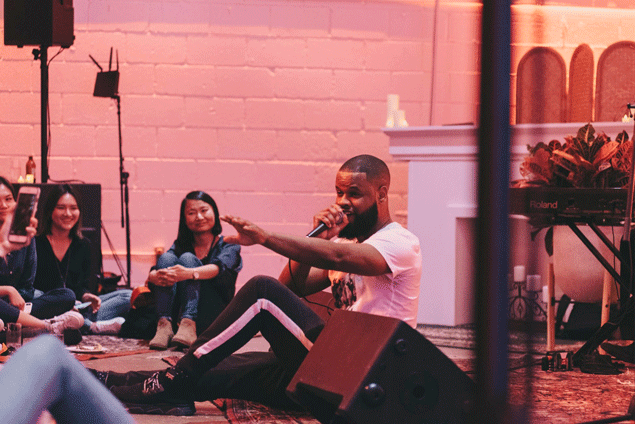
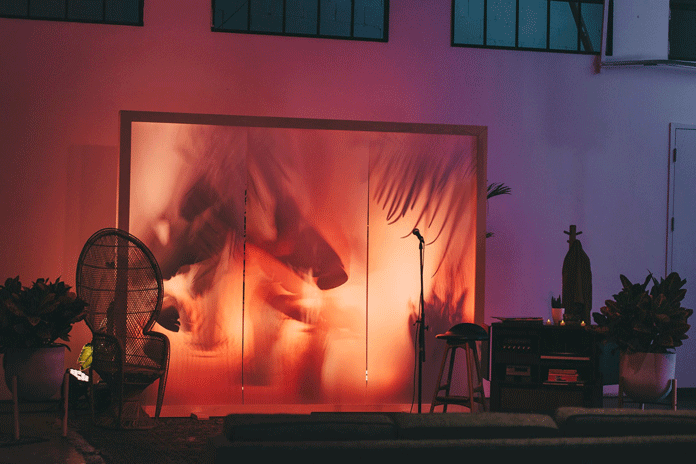
With our programming, we put a big importance on the quality of the experience, not only from the artist’s perspective but also from the guest’s perspective and we try to create a balance with that relationship. It’s not simply the guests coming out to support live musicians. That’s a very one-way relationship. We rather try to create an experience where the musician offers a service and it is being absorbed by the guest and the guest is enjoying this experience and in return supporting the live musician.
We also try to create a very high-quality experience, not only around the audio and the musician that we are featuring but also in the visuals of the environment: the quality of the seating, the quality in the lighting etc. It’s all elevated so that when you are experiencing live music it’s very different than what you’re traditionally used to and it becomes something that you seek out on your own, rather than going out to simply support the artist.
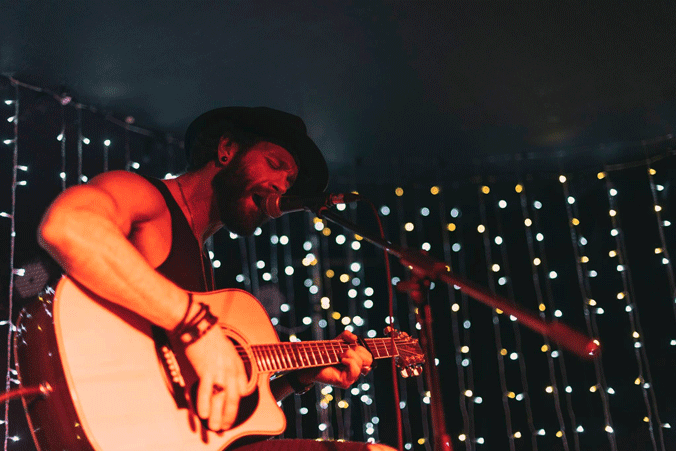
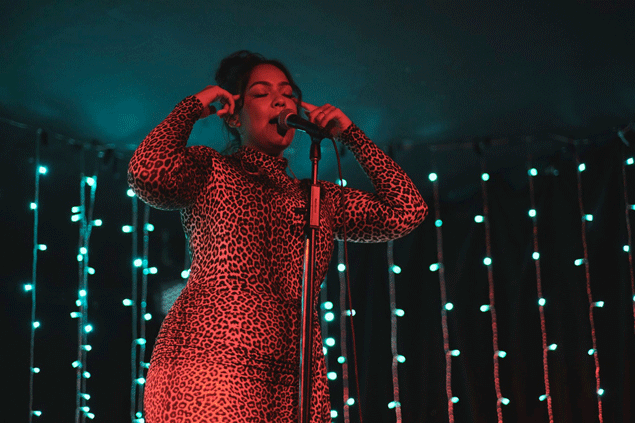
How have COVID-19 lockdowns affected Waveland and emerging Canadian musicians?
It’s actually very interesting because I know that there has been a lot of organizations that have been negatively impacted by COVID-19. However, we’ve experienced a tremendous amount of growth. We were able to pivot to a virtual space very quickly. We made many mistakes in the beginning, however, we didn’t lose sight of our value of the artist providing a service and the guest absorbing that service. So, even though we’re doing virtual events, they’re still very high-quality. The visual components are still there and we’re trying to mimic that experience that was in-person in a virtual space.
Song for Seniors, for example, is an elevated virtual experience for a new community that we genuinely wouldn’t have reached out to or served. With the Everbloom Music Festival being a virtual music experience, those performances now live on Youtube forever. So we can now continue promoting the artist outside of the event, whereas that necessarily wouldn’t have happened at an in-person festival.

I think obviously that funding has also been a big help. We’ve been able to demonstrate how far we can take funding from a quality perspective and show how many artists we can serve and arts and culture workers we can employ. I think the quality of our work has really been a big component in the growth that we’ve experienced in COVID-19, rather than just taking the money and slapping something together for the sake of just doing something.
What advice would you like to give Canadian musicians?
Be very careful and wary about the type of information and feedback that you’re absorbing from the industry because I believe there’s a big change coming within the music industry. This is not only from a leadership perspective but simply from an operational perspective. There are a lot of dated opinions that don’t apply anymore to today’s world.
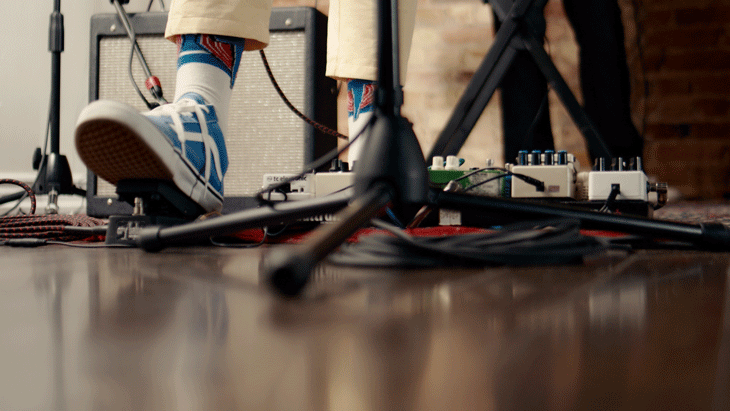
For example, the whole concept that every musician is just out to get famous is a dated perspective. This is also a mirror into how some people may not see the music community in Canada as an actual professional career for some people. We currently define success as a musician only if you get famous and picked up by a label or supported by some sort of organization.
In reality, you can now make lots of money without being traditionally ‘famous’. If you put yourself through some learning around streaming, data analytics, branding and surround yourself with the right team, you can make hundreds of thousands of dollars just off of streaming. This includes having properly aligned and carefully selected collaborations and partnerships. So the notion that every musician or artist is out to just get famous is one of the dated perspectives that’s not true and just reflects how far we still have to go in establishing the title of ‘musician’ as a professional career that people can pursue, and giving it the resources and the respect that it deserves.
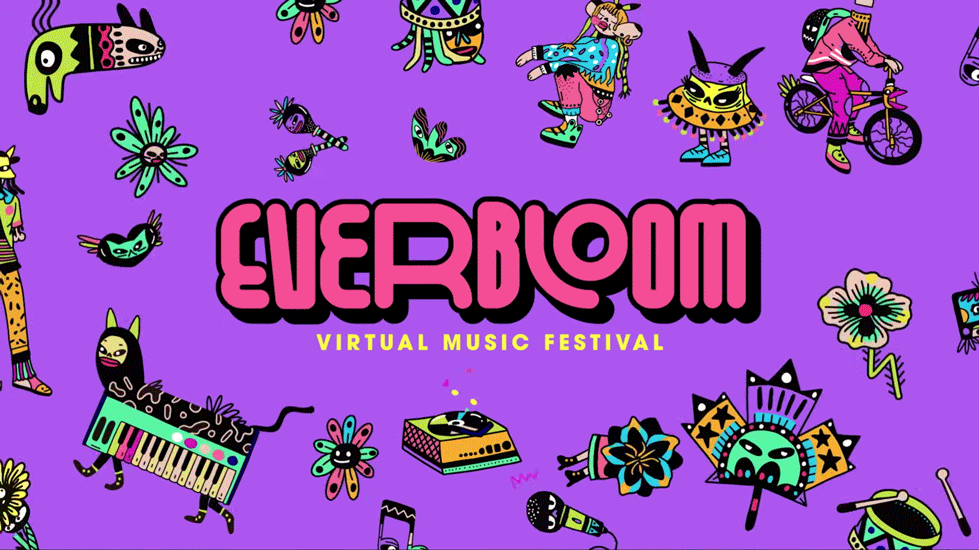
To join Waveland’s Everbloom Virtual Music Festival for Canada Day, visit this page.
To learn more about Waveland and their programs visit their website, here, and their Instagram page, here.
